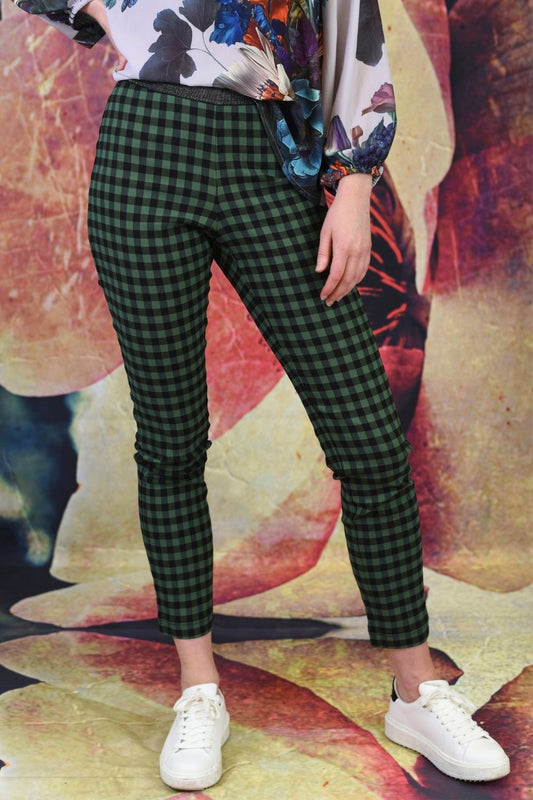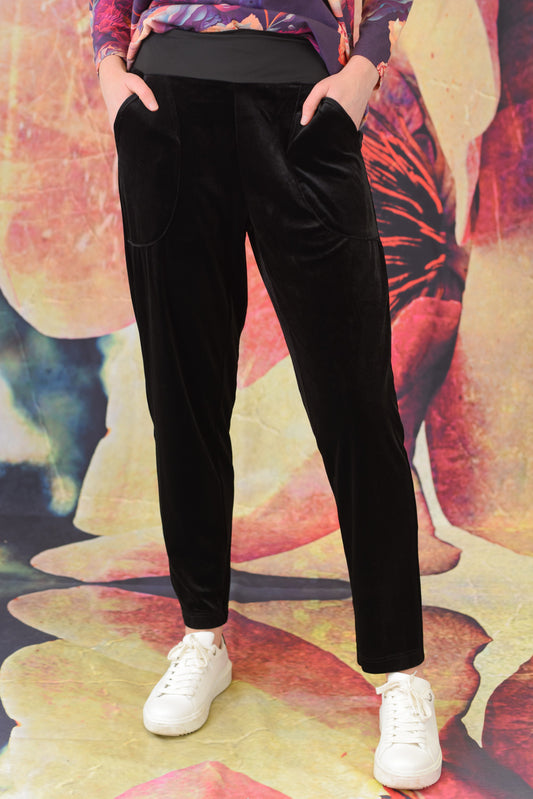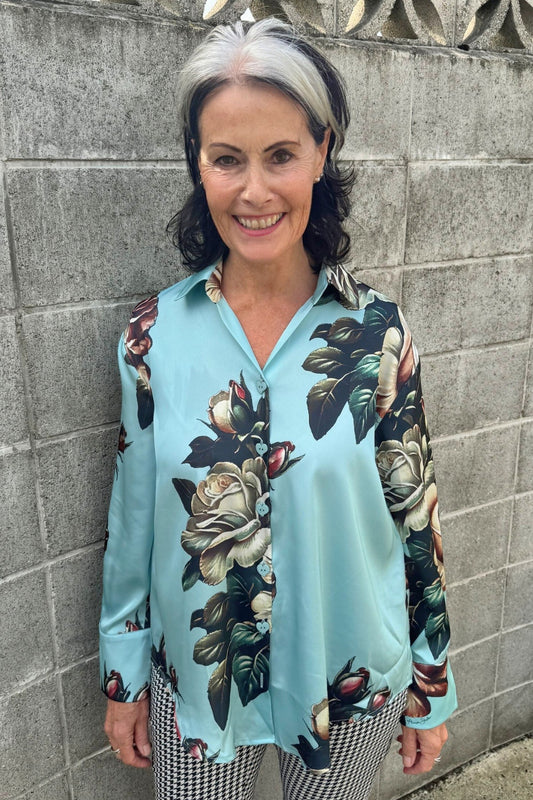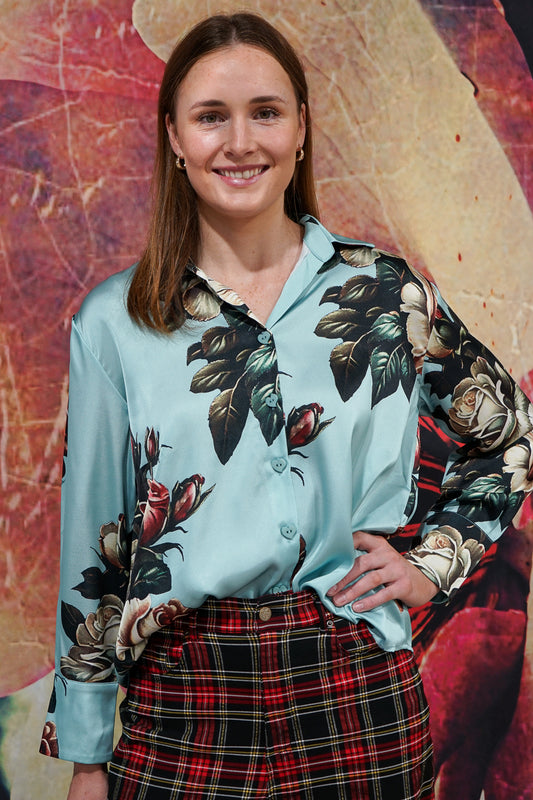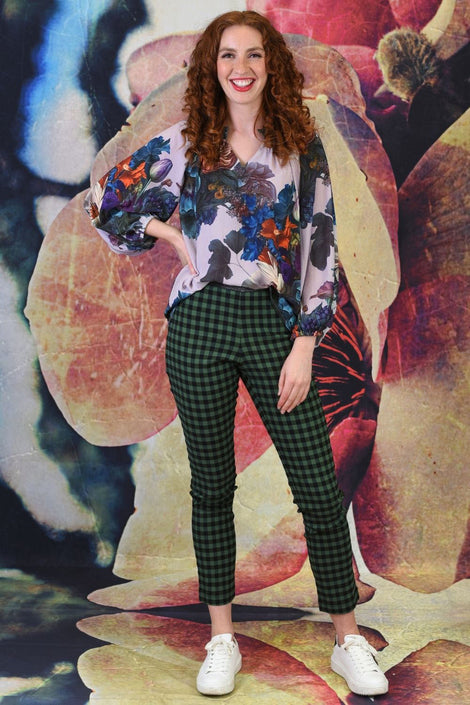
New Zealand designer Annah Stretton's journey into fashion began about 30 years ago after a dare by her father.
She had trained in fine art, and "in a moment of madness and possibly too much Hawke's Bay wine", she suggested she could do anything he could - he was an accountant and a lawyer, so she picked an accountancy degree.
Seven years of hard graft later, she got that degree. It was through an accounting job at a fashion wholesaler to the likes of Farmers, Glassons and EziBuy that she crossed over to the design side.
It was a very different time in the late 1980s – there was no internet, no China production, no Australian chain stores. She travelled the world spotting designs that were trendy in places like London, and putting together collections for stores back in New Zealand.
"I learned from some of the toughest people in the industry," she says.
"So it was trial by fire, but I was good at it because I love the business of fashion more than I love the design of it. I love the deal, I love negotiating."
In 1992 she decided to strike out on her own, putting those negotiating skills to use. She turned over $1 million in the first year of which 50 per cent was profit – that's $500,000 for someone who'd just come off a salary of $42,000.
But in 1995, everything changed.
"One day Kmart NZ called me in and said hey, we're taking all our business offshore, we've now got a lot of other opportunity out of China, we can get a lot cheaper prices than we can get here in New Zealand."
After absorbing the blow, she began opening her own Annah Stretton stores, ending up with 30 in New Zealand and four in Australia.
She eventually built up a $10m company, but says she wouldn't consider starting out in fashion now. "There are easier ways to make money."
For the last five years particularly it's been a highly disrupted market, resulting in the closures of labels like Miss Crabb and Andrea Moore.
"It used to be a really nice space and an easy space to make a living in," she says.
Now there's hard competition against big companies. Margins are also bigger, but the overheads such as rent and staff costs have grown too.
"I was speaking to one of our large players the other day, and for them to sell a garment at $169 retail, they had to buy it at $19. That's insane. I can't make garments for $19 that you can sell at $169."
THICK SKIN IN FASHION
Stretton's daughter Sami, "without coercion", wanted to be the succession plan, and is now general manager as part of a five-year handover. Stretton is still hands on, particularly with collection development and design.
"I do see it surviving, I see it reshaping, I think she'll rebrand and probably just use the word Stretton, not Annah Stretton. That also will give me my name back and enable me to move and do some other things."
She's made waves with her fashion shows, including her infamous Feral Beauty show at NZ Fashion Week in 2004 which kicked off with a boar's head in a dress. But her business-oriented approach has won her plenty of negative reaction in the industry, she says.
"You develop a really thick skin in fashion... People that I connect with now can't believe that I don't really know Kate Sylvester or Karen Walker or Trelise Cooper. I know of them when I'm in a room, but we don't speak to each other."
PHILANTHROPY
Stretton says her company has always been philanthropic, but when she set up a foundation in 2013 she wasn't sure what she was going to do until the head of Waikato Women's Refuge approached her.
Keen to work with vulnerable, particularly Māori, women, she unashamedly used her brand and knocked on the door of then Corrections chief executive Ray Smith.
Sixty women classed as recidivist offenders have now been through her Raw (reclaim another woman) model, which includes working with women in prison and intensive support once they leave.
"It's important to note there's not a big appetite for change [among the women] - they've normalised the crime, the violence, the alcohol, all of that stuff that we find so difficult has become normalised for them.
"We think that what we're offering is the Hyatt Hotel, but when they look at it, they don't see that."
For every dollar invested in Raw, nearly five times that value is returned to New Zealand, according to an evaluation by Impact Lab, co-founded by former prime minister Sir Bill English.
It's not just about getting a woman into a minimum wage job, or picking apples in Hawke's Bay, and key to that is understanding the women's "new normal".
"There's a lot of people who want to add a feel-good factor on the inside but it doesn't really help the women on exit."
Stretton is a big believer in what prison can achieve. "They are the only interrupter to criminal activity that we have. Sentencing in a community doesn't stop the activity, unfortunately."
At first, Stretton struggled to get traction with the women, who were unimpressed by an advantaged Pākehā fashion designer, but she found some success using influencers.
"We did it by finding the women in the prison who had the biggest influence, and in a lot of cases that is through the level of toughness, and we created advocates with those women, and those women created groundswell for us."
She takes speakers into prison with her every Thursday from all walks of life, including Seven Sharp presenter Hilary Barry.
Barry said she had visited Auckland women's prison last year.
"It was deeply humbling and it was obvious from the outset that Annah was making a huge difference in these women's lives and that every one of them had a deep respect and affection for her," she said.
Raw works with women in Arohata Prison in Wellington and a women's unit at Rimutaka Prison, and also at Auckland women's prison.
Tania Sawicki Mead, director of criminal justice organisation JustSpeak, said any effort to help women in prison reintegrate into their communities was helpful.
"There is a massive system-level failure to support women with culturally appropriate services for Māori. My concern is really about the ad hoc way these kinds of initiatives get funding or support, and the need for a real solution that's long-lasting.
"That's something that shouldn't be put on the shoulders of those that are doing what they can to help, but it does expose an even wider problem."

